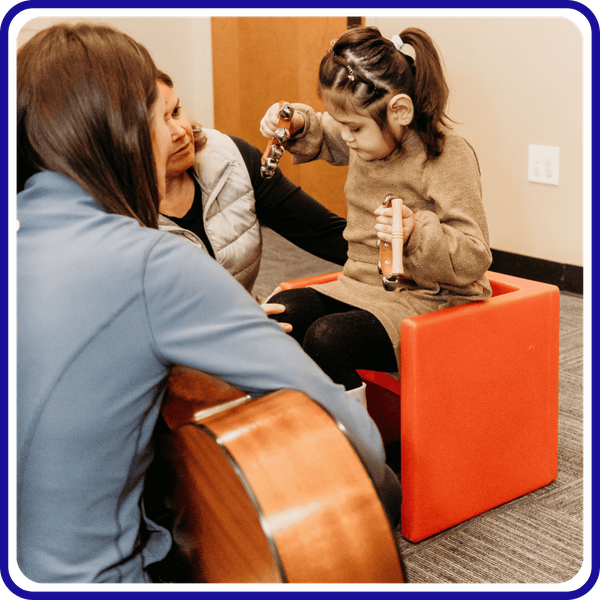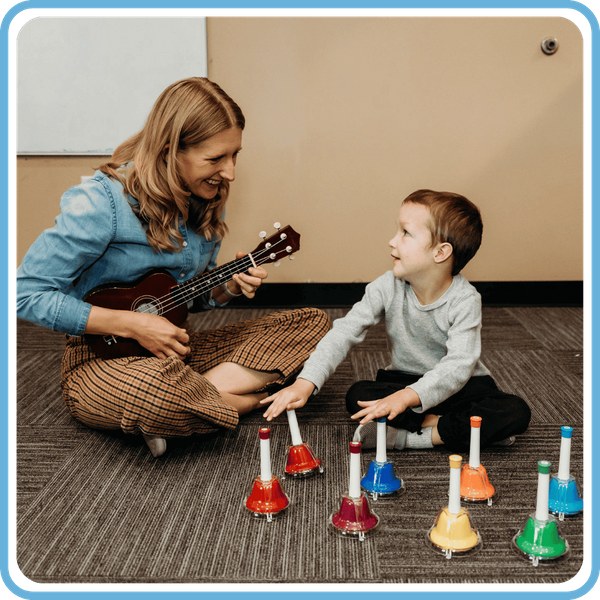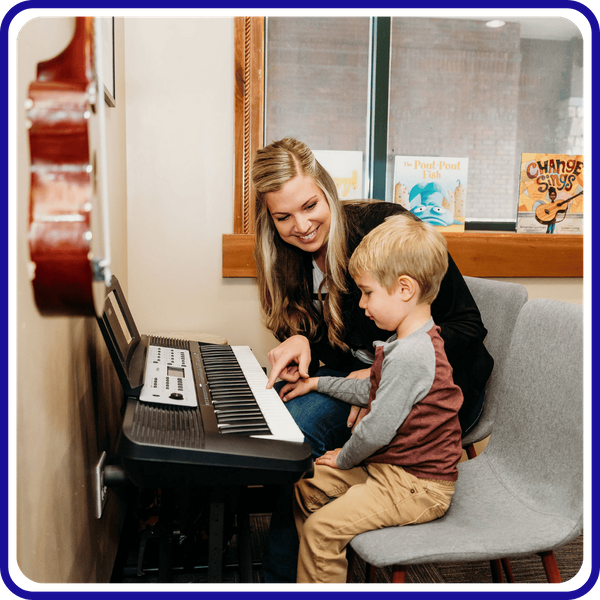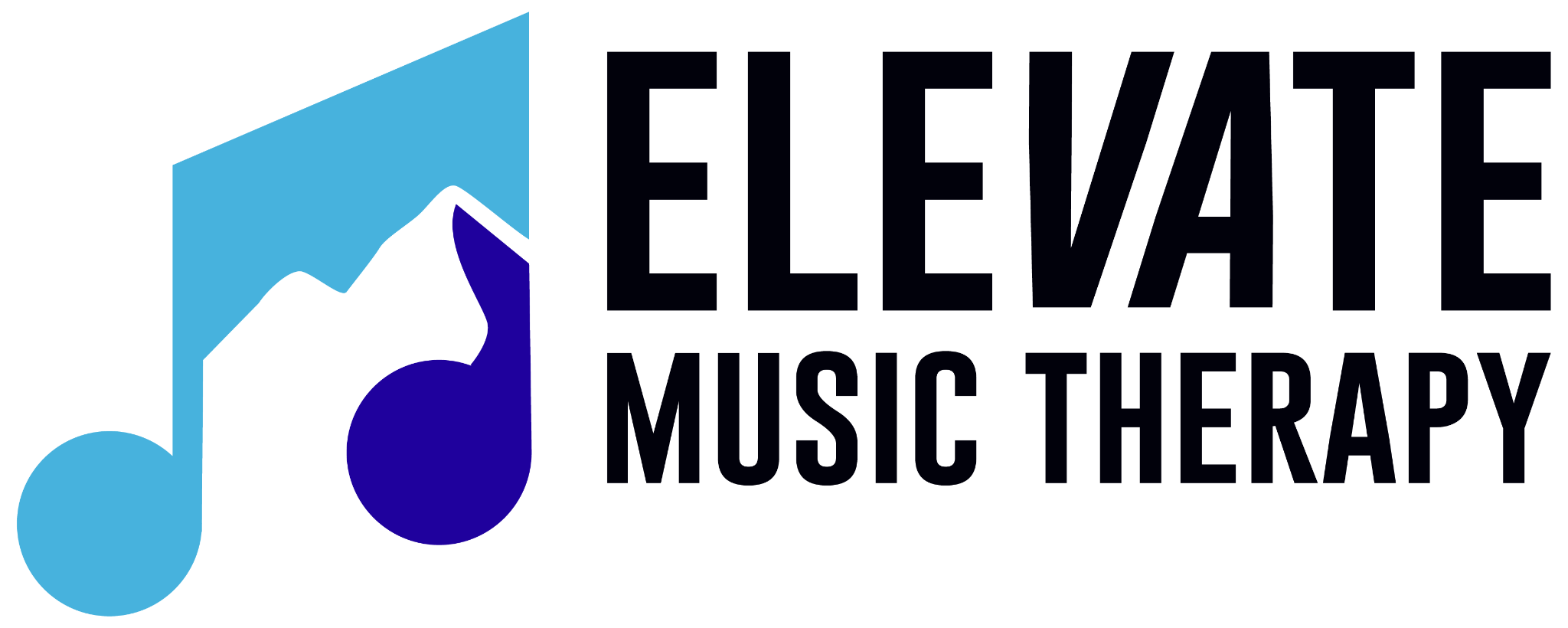What is Music Therapy?
Discover the Clinical Power of Music for Health and Development
Music is a universal language that influences mood, memory, and movement. Music Therapy harnesses this power through a clinical, evidence-based approach to help individuals achieve personalized, non-musical goals.
About Music Therapy
Music therapy is the clinical and evidence-based use of music interventions to accomplish individualized goals within a therapeutic relationship. This is not simply listening to calming music; it is a specialized healthcare discipline practiced by a board-certified professional, a Music Therapist (MT-BC). The process involves an initial assessment, goal setting, implementing tailored musical interventions, and evaluating progress. Our music therapists target a range of crucial developmental areas, including socio-emotional regulation, psychomotor skills, cognitive function, and speech/language abilities, providing a holistic pathway to growth.


A Detailed Explanation of Music Therapy
Music therapy is a dynamic process built on an understanding of how music affects the brain and body. Our primary goal is to address specific therapeutic objectives, such as improving communication skills, increasing motor function, reducing anxiety, or enhancing self-expression. The process is highly adaptable: one session might involve improvising music to explore social dynamics, while another might use rhythmic drumming to improve gait stability. The key is that the music itself serves as the tool to address clinical needs, with all interventions meticulously planned and documented to ensure they are driving progress toward the client's treatment goals.

Music Therapy vs. Music Lessons
A common question is the distinction between music therapy and conventional music lessons. The fundamental difference lies in the intent and the outcome. Music lessons are focused on teaching a client how to acquire technical and performance proficiency on an instrument, making the musical skill itself the primary goal. In contrast, music therapy uses musical activities as the clinical means to achieve non-musical, functional goals. For example, a therapist might use singing to improve breath control and articulation (a speech goal), or use drumming to increase motor coordination (a physical goal). The focus is not on musical mastery, but on therapeutic progress, making music therapy a distinct healthcare profession practiced by a board-certified professional (MT-BC).

The Value of Music-Centered Intervention
Music therapy offers unique and accessible pathways for individuals who may struggle with traditional talk therapy or physical exercises. It is highly engaging, adaptable, and motivates clients through the universal language of rhythm and melody. We are proud to offer a collaborative environment, often co-located with speech, physical, and occupational therapy, to ensure coordinated, comprehensive care.
Our Core Values
Promotes Cognitive Development
Music stimulates memory, attention, and executive function.
Enhances Socio-Emotional Health
Supports self-expression, communication, and emotional regulation.
Facilitates Motor Function
Rhythm and tempo can naturally cue and improve movement and coordination.
Accepts Medicaid Waivers
Making our evidence-based services accessible to more Northern Colorado families.
Who Can Benefit from Music Therapy?
Music therapy is effective across the entire lifespan, from early childhood through older adulthood.
Children and Adolescents
Can benefit from improved speech and communication, enhanced social skills (especially in group settings), and support for diagnoses like Autism Spectrum Disorder (ASD), developmental delays, and anxiety.
Adults
Can find support for conditions like stroke rehabilitation, Parkinson's disease, traumatic brain injury (TBI), chronic pain, and mental health challenges.
The Science Behind Music Therapy and Common Techniques
The effectiveness of music therapy is rooted in neuroscience. Music is processed in multiple areas of the brain, including those responsible for emotion, memory, and motor control. By activating these pathways simultaneously, music can create new neural connections or compensate for damaged ones.
Lyric Analysis & Songwriting
For exploring feelings, improving communication, and developing coping mechanisms.
Rhythmic Auditory Stimulation (RAS)
Using a rhythmic beat to cue and improve walking patterns in clients with gait disorders.
Singing/Vocal Interventions
Used to improve breath control and articulation for clients with speech impairments.
Instrumental Play
Used to improve motor skills, strength, and range of motion.
Ready to Connect with Elevate Music Therapy?
If you are seeking a clinical, collaborative, and highly engaging path to support the functional, developmental, or emotional needs of your loved one, music therapy at Elevate is here for you. Our dedicated team of board-certified music therapists is ready to partner with you to set achievable, individualized goals and discover the unique potential that music unlocks. Contact us today to learn more about our services in Northern Colorado.
